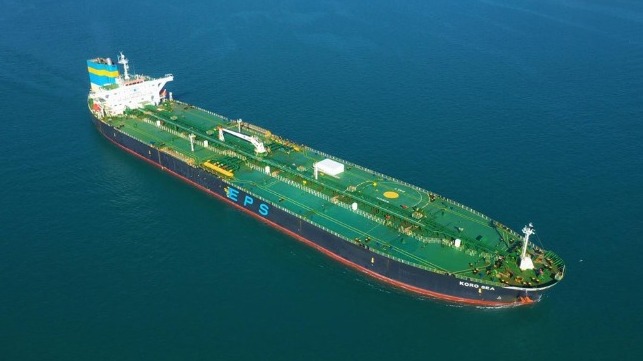EPS Proceeds With Methanol as a Fuel While Ammonia is Developed

As the shipping industry works to develop its path towards decarbonization, one large shipowner has decided to use the existing technology to start a conversion to methanol while longer-term solutions continue to be developed.
Eastern Pacific Shipping, which has a fleet of containerships, dry bulk carriers, and tankers totally 15 million dwt, will work with OCI, a producer and supplier of nitrogen and methanol, and MAN Energy Solutions to begin to retrofit existing ships and develop new ones to run first on methanol later ammonia as it is developed as a marine fuel. The companies expect to have the first ships sailing on methanol in the next two years.
“As a leading tonnage provider, EPS has taken a firm stance that sustainability begins with accountability. This means we have a responsibility to implement emission lowering solutions available today while simultaneously developing solutions for tomorrow,” said EPS CEO Cyril Ducau. “Converting our existing conventional fleet to burn methanol creates a unique opportunity to continue lowering our carbon footprint significantly and rapidly. In the meantime, developing ammonia-fueled conversion and newbuilding projects will help develop more mature zero-carbon solutions in the longer-term.”
Under the program, they will begin by selecting conventional vessels from EPS’ existing tanker fleet that use MAN engines to be retrofitted. The vessels will be adapted allowing them to be powered by methanol and ammonia, which will be supplied by OCI. Also, EPS will construct newbuild vessels with MAN engines powered by the same alternative marine fuels. OCI intends to charter the first retrofitted vessel from EPS.
“The use of ammonia or methanol as a shipping fuel is particularly promising as these products are among the best-placed alternatives to help this sector decarbonize in a cost-effective way. We are confident that, in addition to the exciting developments on new-builds, existing vessels can economically convert their engines to use our low-carbon products and help the industry meet its goals,” said Ahmed El-Hoshy, Chief Executive Officer of OCI NV. “We see this as starting with the adoption of grey/blue methanol and ammonia and then shifting to green as production costs come down, customer appetites move towards green and regulations continue to develop.”

that matters most
Get the latest maritime news delivered to your inbox daily.
The companies hope that this project will also set an example for other shipping companies to work with available technologies to begin to achieve reductions in CO2 emissions. They note that the technology to retrofit a vessel to accept methanol as a fuel is available today.
“Methanol and ammonia are very interesting candidates as zero-carbon fuels. We have already introduced a methanol-burning two-stroke engine, while we expect to deliver the first ammonia-fueled engine in 2024,” said Brian Østergaard Sørensen, Vice President and Head of R&D, Two-Stroke Business at MAN Energy Solutions
